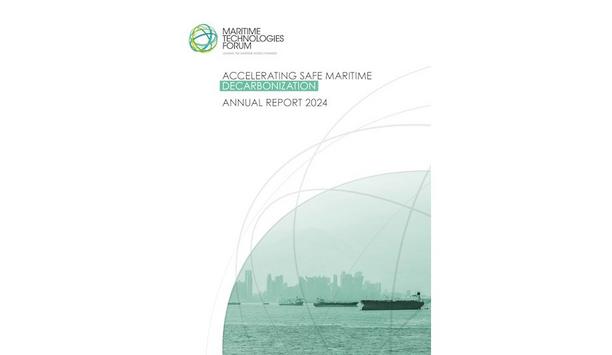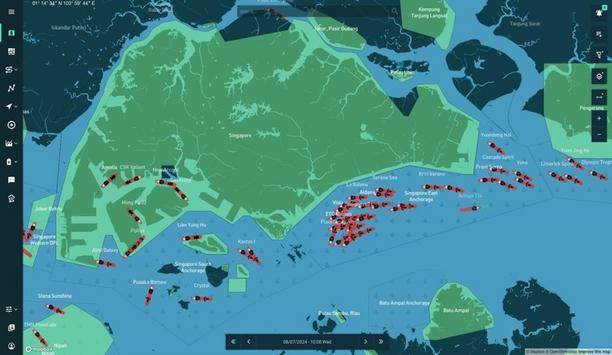Cargo handling systems trade associations in Denmark
The Global Maritime Forum is an international not-for-profit organisation committed to shaping the future of global seaborne trade to increase sustainable long-term economic development and human wellbeing.
The Mærsk Mc-Kinney Møller Center for Zero Carbon Shipping ensures real climate action. They are a not-for-profit, independent research and development centre, looking to accelerate the transition towards a net-zero future for the maritime industry. With their partners, they drive and facilitate the development and implementation of new technologies and build confidence in new concepts.
The Sea Cargo Charter provides a global framework for aligning chartering activities with responsible environmental behaviour to promote international shipping's decarbonisation.
Founded under the auspices of the International Chamber of Commerce in 1933 as a neutral, non-profit, international organisation, the Bureau International des Containers' (BIC) mission is to enable efficiency in container transportation while promoting safety, security, standardization and sustainability.
Founded in 1956, China Classification Society (CCS) is headquartered in Beijing and is a full member of the International Association of Classification Societies (IACS). CCS provides classification services to ships, offshore installations and related industrial products by furnishing world-leading technical rules and standards.
The CO Research Trust (formerly the Gas Safety Trust) is a registered charity, established in 2005. The objective is to reduce the incidents of death and serious injury from carbon monoxide (CO) poisoning.
Compagnie Maritime Belge (CMB) is a privately owned company, based in Antwerp, Belgium and with offices in Singapore, Hong Kong, Tokyo, Brentwood and Hamburg. At present CMB is active in the marine sector areas of dry bulk shipping — Bocimar, container shipping — Delphis, chemical tankers — Bochem, innovation and development - CMB.TECH, Crew Transfer Vessels (CTWs) - Windcat Workboats, real estate - Reslea and Maritime Campus Antwerp.
Department for Energy Security and Net Zero (DESNZ) is focused on the energy portfolio from the former Department for Business, Energy and Industrial Strategy (BEIS), in the United Kingdom (UK) government.
The European Commodities Exchange is an association grouping 38 national Exchanges from 12 European countries. Its headquarters are at the Strasbourg Commodities Exchange, owing to the city’s central nature and the presence of the European institutions
Evergreen Line is the unified common trade name for the four shipping companies of the Evergreen Group. The brand 'Evergreen Line' is used for international marketing purposes for Evergreen Marine Corp. (Taiwan) Ltd., Italia Marittima S.p.A., Evergreen Marine (UK) Ltd. and Evergreen Marine (Hong Kong) Ltd. and was established May 1, 2007 in response to the request and expectations of global customers.
The Global Centre for Maritime Decarbonisation (GCMD) was formed on 1 August 2021 with funding from the Maritime and Port Authority of Singapore (MPA), and six founding partners, namely BHP, BW, DNV Foundation, Eastern Pacific Shipping, Ocean Network Express and Sembcorp Marine. Located in Singapore, GCMD was set up as a non-profit organisation to support decarbonisation of the maritime industry to meet or exceed the IMO goals for 2030 and 2050.
IAPMEI is a specialised public agency within the Portuguese Ministry for the Economy, created to provide technical and financial support to enterprises, in particular to SMEs. IAPMEI’s main mission is to actively participate in the design and implementation of integrated strategies for the support of Portuguese corporate activity, with a special focus on SMEs and with a view to modernisation, innovation and international competitivity.
Institute of International Container Lessors (IICL) is the trade association of the marine container leasing and chassis provider industry. IICL container leasing member companies engage in leasing marine cargo containers to ship operators and others on a broad international basis. IICL intermodal chassis provider members are in the business of owning and leasing chassis to motor carriers, ship operators, and cargo owners.
International Association of Dry Cargo Shipowners (INTERCARGO) represents the interests of quality dry cargo shipowners. INTERCARGO provides the forum where dry bulk shipowners, managers and operators are informed about, discuss and share concerns on key topics and regulatory challenges, especially in relation to safety, the environment and operational excellence.
International Association of Oil & Gas Producers (IOGP) are the global voice of their industry, pioneering excellence in safe, efficient, and sustainable energy supply - an enabling partner for a low carbon future. Their members, integrated energy companies, national oil companies, independent upstream operators, service companies, and industry associations operate around the globe, supplying over 40% of the world’s oil and gas demand.
International Foundation for Aids to Navigation (IFAN) is an international association that promotes safety at sea and aids to navigation through the world's busiest chokepoints and shipping routes.
International Seabed Authority (ISA) is an autonomous international organization established under the 1982 United Nations Convention on the Law of the Sea (UNCLOS) and the 1994 Agreement relating to the Implementation of Part XI of the United Nations Convention on the Law of the Sea (1994 Agreement).
The International Seafarers' Welfare and Assistance Network exists to improve the lives of seafarers and their families with services, resources, strategies and advocacy. ISWAN is a membership organisation with the International Chamber of Shipping, The International Transport Workers Federation and the International Christian Maritime Association as the core members.
Maritime London is the promotional body for UK-based companies providing maritime professional services to the international shipping industry. Funded by well over 130 companies and organisations from a wide range of disciplines, Maritime London ensures that the UK remains a world-beating location to base a maritime-related business and to conduct maritime trade.
Maritime Research and Innovation UK (MarRI-UK) are a collaborative innovation vehicle for the UK industry and academia to jointly tackle innovation and technology challenges. They focus on research and innovation within mid TRL (3 – 7) levels to address the opportunities between 'discovery and research' and 'commercialisation' of Maritime Technologies and Systems.
The National Marine Manufacturers Association (NMMA) is dedicated to advocating for and promoting the strength of marine manufacturing, the sales and service networks of its members, and the boating lifestyle. NMMA is the nation’s leading trade association representing boat, marine engine and accessory manufacturers. Collectively, NMMA members manufacture an estimated 80 percent of marine products used in North America.
The National Oceanic and Atmospheric Administration (NOAA) is an American scientific and regulatory agency within the United States Department of Commerce that forecasts weather, monitors oceanic and atmospheric conditions, charts the seas, conducts deep sea exploration, and manages fishing and protection of marine mammals and endangered species in the U.S. exclusive economic zone.
The National Shipbuilding Office (NSO) drives transformative change to empower a globally successful, innovative and sustainable shipbuilding enterprise that works for all parts of the UK. The NSO oversees all of the Government's interests in UK shipbuilding, supports growth in the sector, and works with industry to improve productivity and competitiveness.
Petroleum and Energy Trading Services Co. (PETSE) started its operation in the year 2007 at Al Khobar in the eastern province of Saudi Arabia. Since its formation, the company has grown steadily and focuses in providing solutions across various market segments including Oil & Gas and Information and Communication Technology industries.
Spanish Shipping Association (ANAVE) was founded in 1977, its origins coming from an earlier organisation, OFICEMA, established in 1952. ANAVE mission is coordinating and defending the interests of Spanish shipping companies. To fulfil this mission, among other activities, ANAVE maintains regular contacts with the Spanish national administration, the EU institutions and trade unions and actively participates in various global and associations.
Stiftelsen Det Norske Veritas is a free-standing, autonomous and independent foundation whose purpose is to safeguard life, property and the environment. This purpose is achieved through its ownership of companies – of which the most important is the DNV group, a classification, certification and technical assurance and advisory company.
The Swedish Transport Agency has the overall responsibility for commercial transport on roads in Sweden. The Swedish Transport Agency is working to achieve good accessibility, high quality, secure and environmentally aware rail, air, sea and road transport. They have overall responsibility for drawing up regulations and ensuring that authorities, companies, organisations and citizens abide by them.
The Workboat Association is the trade, skills and safety standards association for the workboat industry. Since its inception in 1994, the association has acted as a crucial point of liaison between its membership and key regulatory and industry bodies, such as the Maritime and Coastguard Agency (MCA).
The UK Ship Register is part of the Maritime & Coastguard Agency (MCA) with headquarters based in Southampton, UK. They are an executive agency of the UK Government's Department for Transport. They value long term relationships and aim to continue providing client focused maritime administration and related services from vessel registration to official logbooks and more.
The United Nations Convention on the Law of the Sea (UNCLOS) is an international treaty which was adopted and signed in 1982. It replaced the four Geneva Conventions of April, 1958, which respectively concerned the territorial sea and the contiguous zone, the continental shelf, the high seas, fishing and conservation of living resources on the high seas.












